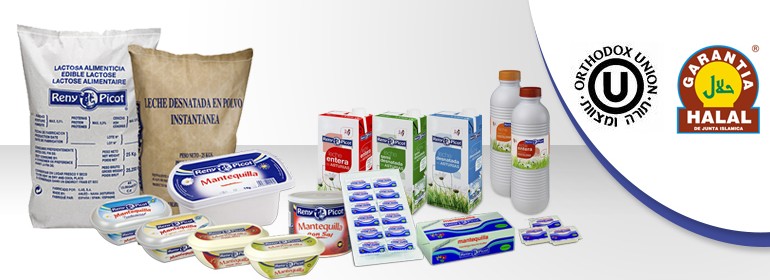The halal and kosher certifications refer to the procedures for assuring the quality of food and products according to the Muslim and Jewish religions respectively. In both cases, they establish some dietary regulations and consumption practises to which both practitioners and non-practitioners of these religions attribute health benefits.
With these certificates, ILAS, under its commercial brand name Reny Picot, aims to win the confidence of those consumers who practise these religions as well as of those who, while not practitioners, value the strict supervision of food production required for the issuance of these certificates and who rate the products as high quality and great tasting, two characteristics in line with our company philosophy. Although at first glance the two certificates might seem similar, the process of accreditation is complex and has serious implications and significance for the consumers of halal and kosher products, thus it requires a considerable commitment on the part of our company.
These certificates, still somewhat unknown in our country, are awakening great interest given the huge opportunities that they represent. There is a growing variety of potential consumers who are demanding such foods – Jews, Muslims, vegetarians, vegans, consumers of restricted diets, and so on – and this remains an uncrowded market in which internationally recognised standards positively influence the buying decisions of consumers seeking the highest quality.
In this sense, the halal market is one of some 1.5 billion potential consumers spread out through all continents – 25 million of whom are in the European Union – with important implications in the markets of food, tourism, cosmetics and hygiene.
For its part, the kosher certification opens doors to a potential market of 25 million consumers throughout the world, 12 million in the United States. The countries with the highest demand for certified kosher products are the United States, Israel, France, the United Kingdom, Canada, Germany, Australia, Argentina, Italy, Norway, Poland and South Africa.




